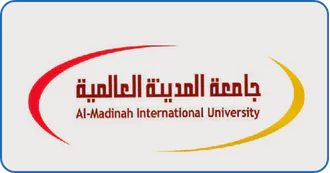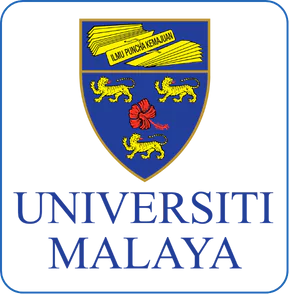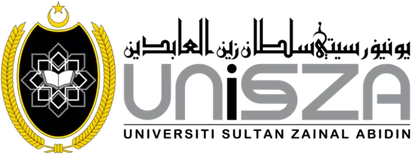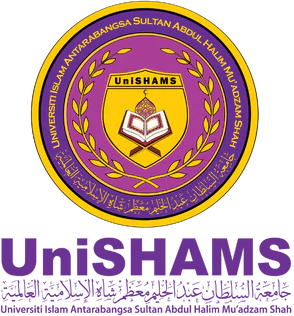If you’re considering pursuing a master’s degree in a field taught in Arabic at an international level, then you’re in the right place. Malaysia and its universities offer a range of master’s programs taught in Arabic, making it an excellent option for Arab students who prefer continuing their higher education in their native language. These programs stand out by offering flexibility and affordability compared to other countries, particularly in fields like Islamic studies, Arabic language, and other related disciplines.
This article aims to help you gain a clear understanding of the available programs, admission requirements, and the education system in Malaysian universities, making it easier for you to make an informed decision about your academic future.
After covering schools available for Arabs in Malaysia in a previous guide, this is another helpful guide for Arab and international students.
Available Master’s Programs in Arabic in Malaysia
Malaysian universities offer a diverse range of master’s programs taught in Arabic, catering to Arab students who are eager to advance their academic skills and earn degrees recognized globally. These programs provide a fantastic opportunity for students to pursue higher education while maintaining a connection to their native language and cultural heritage.
Read: Malaya Scholarships for International Students

The variety of programs spans several academic fields, which are particularly suited for those looking to deepen their expertise in areas relevant to the Arab world. Some of the key programs include:
A. Islamic Studies
This major delves into Islamic jurisprudence, Qur’anic sciences, and the Prophet’s biography (Seerah), with a special focus on contemporary applications of Islamic principles. Students explore both classical and modern interpretations, making this a highly relevant field for those interested in the dynamic relationship between tradition and modernity.
B. Arabic Language and Literature
Covering the grammatical, rhetorical, and literary aspects of the Arabic language, this field also explores the evolution of classical and modern Arabic literature. Students develop a deep understanding of how the language has shaped, and continues to shape, the intellectual and cultural heritage of the Arab world.
C. Sharia and Islamic Law
These programs explore Islamic legal rulings and the application of Sharia law in modern legal systems. They are particularly suited for those who want to contribute to the interpretation and implementation of Islamic law in contemporary society.
D. Islamic Education
This major focuses on preparing educators and academics for roles in religious and Islamic education. Students are trained in modern pedagogical methods, combined with traditional Islamic teachings, making them well-equipped to educate the next generation.
E. Islamic Economics
With the rise of Islamic finance worldwide, this specialization examines Islamic economic principles and how they are applied in today’s financial systems. Students explore subjects like Sharia-compliant banking and how Islamic economic theories can be integrated into global financial practices.
These programs provide a supportive and enriching learning environment that helps students deeply engage with their chosen academic fields while retaining their cultural and religious identity.
Now, let’s explore what each university offers in these diverse fields and how you can apply.
Master’s Programs in Arabic at Al-Madinah International University (MEDIU)
Al-Madinah International University (MEDIU) offers a variety of master’s programs taught in Arabic, which are ideal for Arab students looking to further their education in a culturally familiar environment. These programs are designed to develop academic skills in fields relevant to the Arab and Islamic world while maintaining a strong focus on advanced research and specialization.
Some of the key programs include:
- Master’s in Arabic Language: This program focuses on core aspects such as grammar (Nahw), morphology (Sarf), Arabic philology, and Arabic lexicons. It is tailored for students looking to deepen their expertise in Arabic literature and linguistics.
- Master’s in Literature and Literary Criticism: This program is centered on literary studies and criticism from an Islamic and Arab perspective. It also develops students’ research skills in classical and modern Arabic literature.
- Master’s in Quranic Interpretation and Sciences: This program delves into the interpretation of the Quran and its sciences, including the jurisprudence of the Sunnah. It offers students a comprehensive understanding of both historical and contemporary Quranic exegesis.

A. Admission Requirements at Al-Madinah International University (MEDIU)
To apply for a master’s degree at MEDIU, candidates need to fulfill the following requirements:
- Bachelor’s Degree: Applicants must hold a bachelor’s degree in a relevant field from a recognized university.
- Arabic Proficiency: If Arabic is not the applicant’s first language, they must pass the MEDIU Arabic Placement Test (MAPT) to demonstrate their proficiency.
- Academic Documents: Candidates must submit authenticated bachelor’s degree certificates and transcripts.
- Relevant Work Experience: In some cases, related professional experience may be considered as part of the admission criteria.
B. Study Plans and Curriculum at MEDIU
MEDIU offers several flexible academic structures for its master’s programs, allowing students to choose the format that best suits their academic and professional goals. These structures include:
- Structure A (Research): This pathway requires students to complete 36 credit hours, which includes both coursework and a research thesis. The curriculum emphasizes research methodologies and academic writing.
- Structure B (Research and Project): Students must complete 45 credit hours of advanced coursework and a research project. This pathway is ideal for those focusing on areas such as grammar, morphology, and semantics.
- Structure C (Comprehensive Research): Similar to the other structures in terms of credit hours, this option focuses heavily on in-depth research theses and academic discussions, making it suitable for students aiming for higher academic achievements.
- Flexible Learning Options: One of the significant advantages of studying at MEDIU is the availability of flexible learning options. The university offers both on-campus and distance learning programs, enabling international students to enroll in these programs without the need to relocate to Malaysia. This flexibility makes it easier for students to pursue their degrees while balancing other commitments.
Related: How To Publish A Research Paper For Free
Master’s Degree in Arabic at the University of Malaya (UM)
The University of Malaya (UM) is one of the most prestigious universities in Malaysia and offers a variety of master’s programs for international students. Among these, some programs are taught in Arabic, especially in fields related to Islamic studies and Arabic language studies. UM’s long-standing reputation as a top-tier university makes it an attractive option for students who seek advanced education in these areas while studying in a culturally and linguistically familiar environment. The University of Malaya also offers a wide range of scholarships for international students.

Available Master’s Programs
The University of Malaya provides several master’s programs that cater to students interested in pursuing their studies in Arabic. These programs cover a broad spectrum of academic disciplines:
- Master’s in Islamic Sharia: This program focuses on Islamic jurisprudence (Fiqh) and its principles, examining Sharia law from a contemporary perspective. It is ideal for those looking to engage deeply with Islamic law in modern contexts.
- Master’s in Islamic Studies: This program offers an in-depth study of Islamic creed (Aqeedah) and Fiqh, providing students with a comprehensive understanding of key Islamic disciplines.
- Master’s in Islamic Education: This program is designed to enhance the teaching skills of educators specializing in Islamic studies, incorporating both traditional Islamic teachings and modern pedagogical approaches.
- Master’s in Teaching Arabic: This program focuses on enhancing the pedagogical and instructional skills of Arabic language teachers, equipping them to teach Arabic effectively at various levels.
Admission Requirements
To apply for the master’s programs at the University of Malaya, applicants must meet the following criteria:
- Bachelor’s Degree: Applicants must have a relevant bachelor’s degree in a related field, such as Islamic studies or Arabic language.
- Proof of Arabic Proficiency: Students who did not complete their bachelor’s degree in Arabic must submit certificates proving their proficiency in the Arabic language. This ensures that they can engage fully with the Arabic-medium programs.
- Academic Documents: Certified copies of the bachelor’s degree and academic transcripts must be provided.
- Recommendation Letter: Applicants are required to submit a recommendation letter from an academic professor or a professional reference in their field of study.
- Interview or Research Proposal: Some programs may require applicants to attend an interview or submit a research proposal if they are pursuing a research-based program.
Study Structure and Curriculum
The master’s programs at UM follow an academic system designed to balance coursework with research, offering students flexibility and rigorous academic engagement:
- Coursework: The courses are taught through a combination of lectures and intensive workshops aimed at developing an in-depth understanding of the academic materials. Coursework may include specialized topics in Islamic jurisprudence, Arabic grammar, or Arabic literature.
- Flexible Learning: The university offers flexible learning options, allowing students to enroll on a full-time or part-time basis, depending on their personal and professional obligations.
- Research Path: Students in research-based programs must complete a research thesis under academic supervision. The research component can range between 12 to 36 credit hours, depending on the program. This pathway is ideal for students who are looking to pursue academic careers or engage in advanced scholarly work.
Read about: Malaya university master’s scholarships for international students.
Master’s Degree in Arabic at Sultan Zainal Abidin University (UniSZA)
UniSZA offers several master’s programs in Arabic, provided by its Faculty of Contemporary Islamic Studies. These programs cater to students who wish to further their education in Arabic, focusing on Islamic disciplines and Arabic language studies.
- Master’s in Arabic Language and Literature: This program concentrates on grammar, morphology, rhetoric, and Arabic literature. It enhances students’ skills in literary analysis and prepares them to engage deeply with classical and modern Arabic texts.
- Master’s in Islamic Sharia: This program focuses on Islamic jurisprudence (Fiqh) and its principles. It offers students a chance to explore both theory and practical applications of Sharia law.
- Master’s in Islamic Education: This program prepares students to become teachers and researchers in Islamic education, integrating Islamic values and modern educational methods to improve Islamic teaching in various communities.

Admission Requirements
Applicants for UniSZA’s master’s programs must meet specific requirements:
- Bachelor’s Degree: Applicants need a bachelor’s degree in a related field with a minimum CGPA of 2.75/4.00.
- Work Experience: Students with a CGPA between 2.50 and 2.75 can be accepted after internal evaluation. Those with a CGPA between 2.00 and 2.50 must provide proof of at least five years of relevant work experience.
- Language Proficiency: For programs in Arabic or Malay, no English proficiency is required from international students.
Study Structure and Curriculum
UniSZA provides a flexible learning environment with two main study options:
- Research-Based Path: Students focus on in-depth research, producing a detailed thesis under the supervision of faculty experts.
- Mixed Mode: This path combines coursework and research, offering a blend of theoretical knowledge and practical application. The programs last between two to five years, depending on the chosen path and student’s pace.
UniSZA’s programs are designed for students who seek flexibility while pursuing advanced knowledge in Islamic studies and Arabic language.
Master’s Programs in Arabic at Universiti Sains Islam Malaysia (USIM)
Universiti Sains Islam Malaysia (USIM) offers several distinguished master’s programs in Arabic through its Faculty of Islamic Studies and Faculty of Arabic Language. These programs are designed to meet the needs of students who wish to pursue advanced studies in Arabic language and Islamic studies. The following are key master’s programs available in Arabic:
- Master’s in Arabic Language (Islamic Literature): This program focuses on preparing students in the field of Arabic literature with an emphasis on Islamic literary heritage. It follows the Mixed Mode study system, combining coursework and research.
- Master’s in Arabic Language (Translation): This program is designed to enhance translation skills between Arabic and other languages. It combines both academic courses and research projects, helping students build expertise in linguistic translation.
- Master’s in Communication in Arabic: Offered through a coursework-based system, this program aims to improve students’ communication skills in Arabic, particularly in areas such as administration, society, and culture.

Admission Requirements
To gain admission to USIM’s master’s programs, applicants must meet the following criteria:
- Bachelor’s Degree: A bachelor’s degree in a related field with a minimum CGPA of 2.50/4.00. However, applicants with lower CGPA scores may be considered if they have at least five years of relevant work experience.
- Arabic Proficiency Test (APT): Applicants who have not studied in Arabic or those with weaker Arabic skills may be required to pass the Arabic Proficiency Test (APT) conducted by the university.
Study Structure and Curriculum
USIM offers flexible study modes that cater to different academic needs:
- Coursework-Based System: This structure focuses on courses related to Arabic language and literature, including linguistic skills and communication methods.
- Research-Based System: Students opting for this mode are required to submit a thesis on a chosen topic in their field of specialization. It allows students to engage in independent research under faculty supervision.
- Mixed Mode: This system combines coursework and research projects, allowing students to delve deeply into their areas of interest while receiving continuous academic guidance.
These diverse study options make USIM an excellent choice for students aiming to advance their education in Arabic and Islamic studies in a supportive academic environment.
Master’s Degree in Arabic at Sultan Abdul Halim Mu’adzam Shah International Islamic University (UniSHAMS)
UniSHAMS offers several master’s programs in Arabic, catering to students who seek advanced education in Islamic and Arabic studies. The programs are structured to provide in-depth knowledge and a strong foundation in these fields. Key master’s programs include:
- Master’s in Arabic Language: This program enhances students’ skills in Arabic grammar, morphology, and rhetoric. It delves into both classical and modern Arabic literature.
- Master’s in Usuluddin (Fundamentals of Religion): This program emphasizes Islamic studies, focusing on Quranic exegesis, Hadith sciences, and Islamic theology.
- Master’s in Sharia: This program covers Islamic jurisprudence and its principles, with a focus on comparative fiqh and Islamic law.
- Master’s in Quranic Studies: This program explores Quranic interpretation and the various Quranic recitations (Qira’at), offering a detailed analysis of the Quran’s message.

Admission Requirements
Applicants must meet specific criteria to be eligible for these master’s programs:
- Bachelor’s Degree: A degree in a related field with a minimum CGPA of 2.75/4.00. Applicants with lower CGPA may be accepted if they have more than five years of relevant work experience.
- Applicants must provide a copy of their passport or ID card, a copy of previous academic certificates, and passport-sized photographs.
Study Structure and Curriculum
UniSHAMS offers flexible study options that allow students to combine coursework and research, depending on their academic interests:
- Mixed Mode: In this system, students complete core courses in the first two semesters, followed by a research thesis under academic supervision. This mode blends theory and practical research.
- Full Research Mode: This option requires students to complete an in-depth research project on a specific topic, culminating in a thesis submission at the end of the program.
The duration of these programs ranges from two to five years, depending on whether students opt for full-time or part-time study. The programs attract both local and international students, fostering a diverse academic environment that encourages collaboration and cross-cultural interaction.
Application Process and Admission Steps
Applying for a master’s program in Malaysia involves several essential steps. Students need to follow these procedures to ensure their applications are successful.
1. Application Steps
- Find the Right Program: Choose a program that aligns with your academic and professional goals.
- Apply Online: Visit the university’s website and complete the online application form.
- Submit Required Documents: Ensure you provide all the necessary documentation as outlined by the university.
- Follow Up: After applying, track your application status via the university’s online platform.
2. Required Documents
- Passport or Identity Card: A valid copy for identification purposes.
- Academic Certificates: Certified copies of your bachelor’s degree and transcripts.
- Statement of Purpose: Explain your reasons for pursuing graduate studies and how the program fits into your career plans.
- Passport-Sized Photos: As required by the university’s guidelines.
- Recommendation Letters: Although optional, a letter of recommendation from a trusted professional or academic can enhance your application.
3. Language Proficiency Tests
For international students whose native language isn’t Arabic or English, many universities require proof of language proficiency. Common language tests include:
- IELTS: Minimum score of 5.0.
- TOEFL: Minimum score of 34 for IBT.
- Some universities may also require students to take an Arabic Proficiency Test (APT) if the program is conducted in Arabic.
4. Personal Interviews (If Required)
Some universities may require candidates to pass a personal interview, especially if there are questions about their academic background or work experience.
5. Application Deadlines
Most Malaysian universities have two intakes per year, with application deadlines typically falling in February and September. It’s important to check each university’s website for specific deadlines to avoid missing your preferred intake.
Costs of Studying a Master’s Degree in Arabic in Malaysia
When planning to pursue a master’s degree in Malaysia, understanding the financial costs is essential for proper preparation. The costs of tuition and living can vary based on the university and location. Additionally, students may find opportunities for scholarships or part-time work to help support themselves during their studies.

Tuition Fees for Arabic Master’s Programs
Tuition fees for Arabic-taught master’s programs in Malaysia depend on the university and the specific program. For example, at Al-Madinah International University (MEDIU), tuition fees range from $2,000 to $5,000 per year, depending on the specialization and the mode of study (whether online or on-campus).
Living Costs in Malaysia
Living expenses in Malaysia are relatively affordable compared to many other countries, ranging between $500 and $700 per month. This budget typically covers accommodation, food, transportation, and daily expenses.
Choosing to live in university housing or shared accommodations with other students can significantly reduce living expenses.
Cities like Kuala Lumpur may be more expensive compared to smaller towns or rural areas, but overall, living costs remain manageable for most international students.
Scholarship Opportunities for Arab Students
There are several scholarship opportunities available for Arab students in Malaysia.
The Malaysian Government Scholarship (MIS) is one such example, offering funding to outstanding students from Arab countries. This scholarship covers both tuition and living expenses for students pursuing postgraduate studies.
Universities such as USIM and MEDIU also offer internal scholarships that may cover full or partial tuition fees. Students are advised to apply for scholarships early to increase their chances of receiving financial aid.
Part-Time Work Opportunities for Students
Malaysian regulations allow international students to work up to 20 hours per week during their studies.
Part-time jobs can include positions in academic fields, such as teaching assistants or research aides, as well as service jobs like working in restaurants or cafes. It’s essential for students to manage their time carefully to ensure that part-time work does not interfere with their academic performance.
Pursuing a PhD After Completing a Master’s Degree in Malaysia
Many students aim to continue their studies and pursue a PhD after completing their master’s degree. Malaysian universities offer a variety of PhD programs in Arabic and English, allowing students to specialize further in their chosen fields.
Recognizing Malaysian Certificates in Arab Countries
After completing a PhD in Malaysia, it’s crucial for students to have their degrees recognized in their home countries. Most Malaysian universities are internationally recognized, which simplifies the degree equivalency process in many Arab countries.
The process generally involves submitting academic transcripts, a copy of the thesis, and an official PhD certificate to the relevant Ministry of Higher Education.
Alumni Networks and Professional Connections
Malaysian universities, including those offering Arabic-taught programs, provide strong alumni networks that help enhance professional and academic opportunities.
These networks allow students to establish connections with peers and professors, join international alumni communities, and participate in events or workshops that broaden their professional prospects.
Tips for Academic Success in Malaysia
Success in graduate studies requires more than just excelling academically. Here are some strategies for thriving during your studies in Malaysia:
1. Adapt to Malaysia’s Educational System
Malaysia’s teaching methods might differ from what you’re used to. It’s important to:
- Be open to interactive lectures, group projects, and independent research.
- Understand the academic expectations, including deadlines and project submissions.
2. Develop Strong Research Skills
- Research is a critical component of graduate studies. You should:
- Engage in thorough research and critical analysis.
- Participate in university workshops to enhance your research capabilities.
3. Utilize Available Academic Resources
- Make the most of the resources your university offers, such as:
- Digital libraries, research databases, and academic support services like writing centers.
4. Build Relationships with Professors and Peers
Networking is key. Build strong relationships with both professors and fellow students by actively participating in discussions and seeking guidance for your academic work.
Final Words
Pursuing a master’s degree in Arabic in Malaysia presents a unique opportunity for Arab students, offering high-quality education in fields such as Islamic studies, Sharia law, and Arabic language. Costs for tuition and living are generally affordable, and various scholarships are available to reduce the financial burden. Furthermore, international recognition of degrees and strong alumni networks provide students with valuable support for their academic and professional futures.







